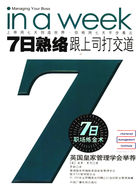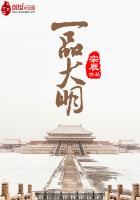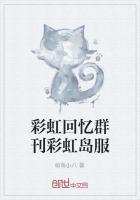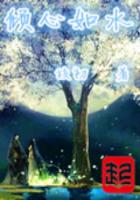In Spain, he'd make a ballad or romance on The last war- much the same in Portugal;
In Germany, the Pegasus he 'd prance on Would be old Goethe's (see what says De Stael);
In Italy he 'd ape the 'Trecentisti;'
In Greece, he sing some sort of hymn like this t' ye:
THE ISLES OF GREECE.
The isles of Greece, the Isles of Greece!
Where burning Sappho loved and sung, Where grew the arts of war and peace, Where Delos rose, and Phoebus sprung!
Eternal summer gilds them yet, But all, except their sun, is set.
The Scian and the Teian muse, The hero's harp, the lover's lute, Have found the fame your shores refuse;
Their place of birth alone is mute To sounds which echo further west Than your sires' 'Islands of the Blest.'
The mountains look on Marathon-And Marathon looks on the sea;
And musing there an hour alone, I dream'd that Greece might still be free;
For standing on the Persians' grave, I could not deem myself a slave.
A king sate on the rocky brow Which looks o'er sea-born Salamis;
And ships, by thousands, lay below, And men in nations;- all were his!
He counted them at break of day-And when the sun set where were they?
And where are they? and where art thou, My country? On thy voiceless shore The heroic lay is tuneless now-The heroic bosom beats no more!
And must thy lyre, so long divine, Degenerate into hands like mine?
'T is something, in the dearth of fame, Though link'd among a fetter'd race, To feel at least a patriot's shame, Even as I sing, suffuse my face;
For what is left the poet here?
For Greeks a blush- for Greece a tear.
Must we but weep o'er days more blest?
Must we but blush?- Our fathers bled.
Earth! render back from out thy breast A remnant of our Spartan dead!
Of the three hundred grant but three, To make a new Thermopylae!
What, silent still? and silent all?
Ah! no;- the voices of the dead Sound like a distant torrent's fall, And answer, 'Let one living head, But one arise,- we come, we come!'
'T is but the living who are dumb.
In vain- in vain: strike other chords;
Fill high the cup with Samian wine!
Leave battles to the Turkish hordes, And shed the blood of Scio's vine!
Hark! rising to the ignoble call-How answers each bold Bacchanal!
You have the Pyrrhic dance as yet, Where is the Pyrrhic phalanx gone?
Of two such lessons, why forget The nobler and the manlier one?
You have the letters Cadmus gave-Think ye he meant them for a slave?
Fill high the bowl with Samian wine!
We will not think of themes like these!
It made Anacreon's song divine:
He served- but served Polycrates-A tyrant; but our masters then Were still, at least, our countrymen.
The tyrant of the Chersonese Was freedom's best and bravest friend;
That tyrant was Miltiades!
Oh! that the present hour would lend Another despot of the kind!
Such chains as his were sure to bind.
Fill high the bowl with Samian wine!
On Suli's rock, and Parga's shore, Exists the remnant of a line Such as the Doric mothers bore;
And there, perhaps, some seed is sown, The Heracleidan blood might own.
Trust not for freedom to the Franks-They have a king who buys and sells;
In native swords, and native ranks, The only hope of courage dwells;
But Turkish force, and Latin fraud, Would break your shield, however broad.
Fill high the bowl with Samian wine!
Our virgins dance beneath the shade-I see their glorious black eyes shine;
But gazing on each glowing maid, My own the burning tear-drop laves, To think such breasts must suckle slaves Place me on Sunium's marbled steep, Where nothing, save the waves and I, May hear our mutual murmurs sweep;
There, swan-like, let me sing and die:
A land of slaves shall ne'er be mine-Dash down yon cup of Samian wine!
Thus sung, or would, or could, or should have sung, The modern Greek, in tolerable verse;
If not like Orpheus quite, when Greece was young, Yet in these times he might have done much worse:
His strain display'd some feeling- right or wrong;
And feeling, in a poet, is the source Of others' feeling; but they are such liars, And take all colours- like the hands of dyers.
But words are things, and a small drop of ink, Falling like dew, upon a thought, produces That which makes thousands, perhaps millions, think;
'T is strange, the shortest letter which man uses Instead of speech, may form a lasting link Of ages; to what straits old Time reduces Frail man, when paper- even a rag like this, Survives himself, his tomb, and all that 's his.
And when his bones are dust, his grave a blank, His station, generation, even his nation, Become a thing, or nothing, save to rank In chronological commemoration, Some dull MS. oblivion long has sank, Or graven stone found in a barrack's station In digging the foundation of a closet, May turn his name up, as a rare deposit.
And glory long has made the sages smile;
'T is something, nothing, words, illusion, wind-Depending more upon the historian's style Than on the name a person leaves behind:
Troy owes to Homer what whist owes to Hoyle:
The present century was growing blind To the great Marlborough's skill in giving knocks, Until his late life by Archdeacon Coxe.
Milton 's the prince of poets- so we say;
A little heavy, but no less divine:
An independent being in his day-Learn'd, pious, temperate in love and wine;
But, his life falling into Johnson's way, We 're told this great high priest of all the Nine Was whipt at college- a harsh sire- odd spouse, For the first Mrs. Milton left his house.
All these are, certes, entertaining facts, Like Shakspeare's stealing deer, Lord Bacon's bribes;
Like Titus' youth, and Caesar's earliest acts;
Like Burns (whom Doctor Currie well describes);
Like Cromwell's pranks;- but although truth exacts These amiable descriptions from the scribes, As most essential to their hero's story, They do not much contribute to his glory.
All are not moralists, like Southey, when He prated to the world of 'Pantisocracy;'
Or Wordsworth unexcised, unhired, who then Season'd his pedlar poems with democracy;
Or Coleridge, long before his flighty pen Let to the Morning Post its aristocracy;















